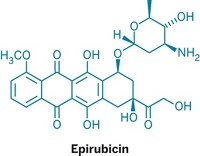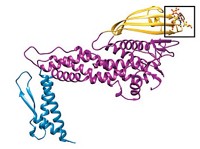Advertisement
Grab your lab coat. Let's get started
Welcome!
Welcome!
Create an account below to get 6 C&EN articles per month, receive newsletters and more - all free.
It seems this is your first time logging in online. Please enter the following information to continue.
As an ACS member you automatically get access to this site. All we need is few more details to create your reading experience.
Not you? Sign in with a different account.
Not you? Sign in with a different account.
ERROR 1
ERROR 1
ERROR 2
ERROR 2
ERROR 2
ERROR 2
ERROR 2
Password and Confirm password must match.
If you have an ACS member number, please enter it here so we can link this account to your membership. (optional)
ERROR 2
ACS values your privacy. By submitting your information, you are gaining access to C&EN and subscribing to our weekly newsletter. We use the information you provide to make your reading experience better, and we will never sell your data to third party members.
Biological Chemistry
How asbestos triggers cancer
June 26, 2006
| A version of this story appeared in
Volume 84, Issue 26
Everyone knows asbestos causes cancer, but now researchers can explain how. A tricky paradox long plagued asbestos cancer studies: Cells in a dish exposed to asbestos always died, but cells in the body survived and became malignant. It turns out our immune system is mostly to blame (Proc. Natl. Acad. Sci. USA, published online, dx.doi.org/10.1073/pnas.0604008103). "Rather than fighting cancer, the immune system often helps cancer to grow, in this case by helping the cell survive the genetic insult from asbestos," says Michele Carbone of the University of Hawaii. When macrophages devour asbestos, they release a distress-call protein called TNF-α. This alerts the NF-??B protein on nearby cells, which activates the cellular machinery that prevents cell death. Cells are protected from asbestos in the short term but become malignant in the long term. Without a mechanism, researchers have struggled to develop drugs for asbestos-linked cancer. "This work has provided at least two targets," comments Matthew B. Grisham of Louisiana State University Health Sciences Center. "The next step is to inhibit those targets in an animal model."




Join the conversation
Contact the reporter
Submit a Letter to the Editor for publication
Engage with us on Twitter